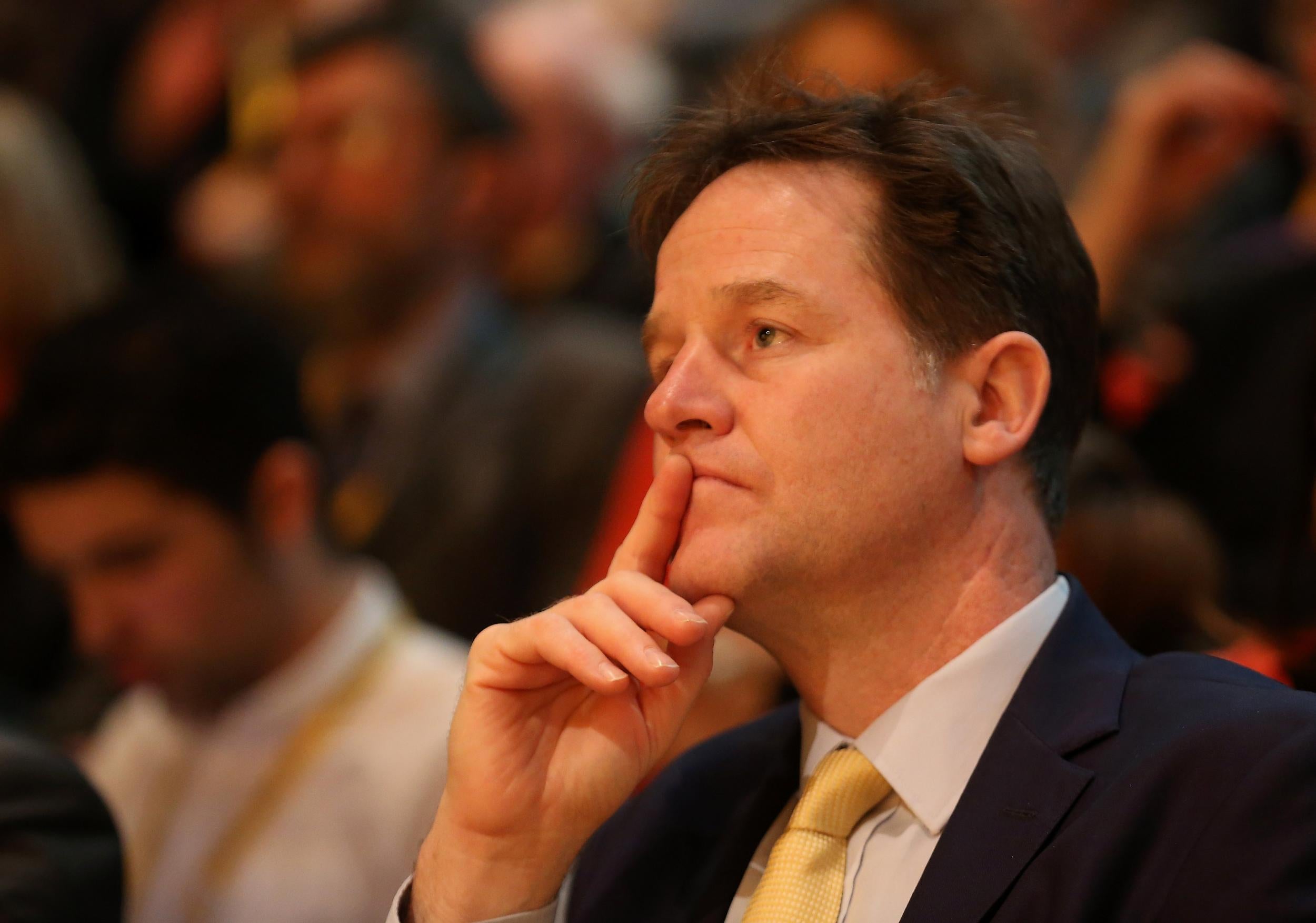Brexit 'already costing UK households £500 a year'
Average UK household disposable income will drop to £34,800 this year, down from £35,300 in 2016, CEBR says

The vote to leave the European Union is already costing UK households £500 a year, Nick Clegg will warn today, following research that showed a sharp decline in the disposable income of Britons in the months after Brexit.
The former Lib Dem leader will use a recent study by the Centre for Economics and Business Research (CEBR) to warn about the impacts of a hard Brexit on the economy.
Giving his first speech of the election campaign in London on Tuesday, he will urge voters to reject Theresa May and the “economic harm she will inflict on Britain”.
He will say the decision to cut ties with the EU is “already hurting the very people who need most help in society”.
"The economic damage is already being felt by the people who the Tories have always cared about least: the poor, the insecure and the vulnerable.
"My argument today is simple: Our country cannot thrive without a strong economy.
"We can't have a strong economy and a hard Brexit.
"Theresa May alone is responsible for pursuing this course.”

His comments follow a report last month that found the average UK household disposable income will drop to £34,800 this year, down from £35,300 in 2016.
It said a weaker pound, higher oil prices and inflation had combined to “put a strain on household finances”.
“For the average UK household, this will translate to less money in their pockets,” the economic think tank warned.
Nina Skero, managing economist at Cebr, wrote in April that “2017 is set to be a challenging year for household finances”.
“Inflation is on the rise and it is particularly worrying that essentials such as housing, transport and food are getting more expensive," he said.
“These concerns are compounded by the fact that despite record employment, wage growth remains exceptionally weak.”
The financial cost of Brexit continues to be felt despite the fact that Britain’s membership of the bloc has almost two years still left on the clock.
Weaker growth, slower job creation and a hefty divorce bill from the EU will leave the UK at an economic disadvantage, experts warn.
Join our commenting forum
Join thought-provoking conversations, follow other Independent readers and see their replies
Comments
Bookmark popover
Removed from bookmarks